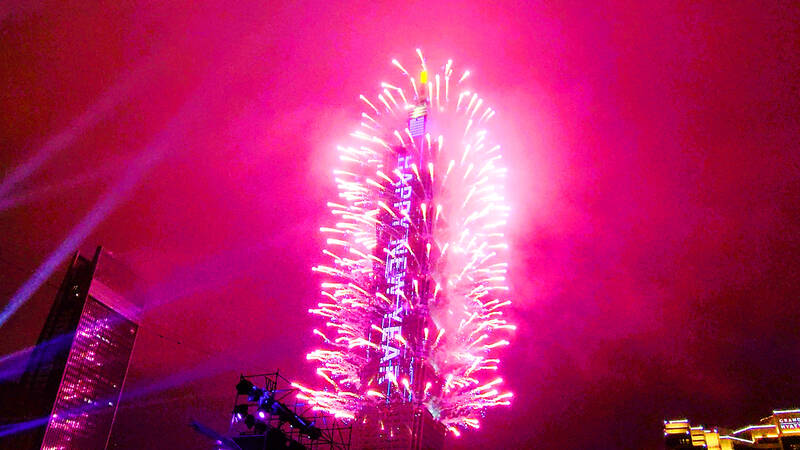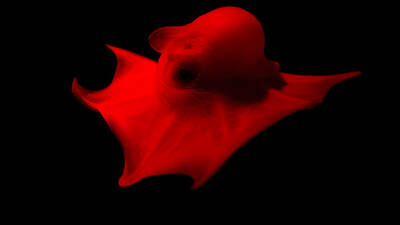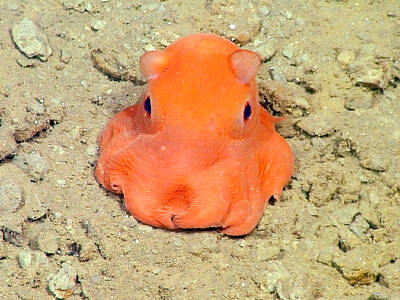對話 Dialogue
清清:你今晚還要去臺北101看跨年煙火嗎?
Qīngqing: Nǐ jīnwǎn hái yào qù Táiběi Yī líng yī kàn kuànián yānhuǒ ma?

Photo: Wikimedia Commons / 照片:Wikimedia Commons 提供
華華:已經連看了好幾年,今年不想去了。
Huáhua: Yǐjīng lián kànle hǎojǐ nián, jīnnián bùxiǎng qùle.
清清:那你打算怎麼跨年?
Qīngqing: Nà nǐ dǎsuàn zěnme kuànián?
華華:還在考慮要不要去看跨年演唱會,不少縣市政府都安排了。
Huáhua: Hái zài kǎolǜ yào búyào qù kàn kuànián yǎnchàng huì, bùshǎo xiànshì zhèngfǔ dōu ānpái le.
清清:不管是煙火還是演唱會,都是人山人海,想參加就要早點出門。
Qīngqing: Bùguǎn shì yānhuǒ háishì yǎnchàng huì, dōu shì rénshān rénhǎi, xiǎng cānjiā jiù yào zǎodiǎn chūmén.
華華:這也是我在想的問題,有點不想去人擠人了,在家舒舒服服地看轉播倒數也不錯。
Huáhua: Zhè yěshì wǒ zài xiǎng de wèntí, yǒudiǎn bùxiǎng qù rénjǐrén le, zàijiā shū shūfúfú de kàn zhuǎnbò dàoshǔ yě búcuò.
清清:聽起來怎麼好像要老的不只一歲?完全沒有年輕人的熱血了!
Qīngqing: Tīng qǐlái zěnme hǎoxiàng yào lǎo de bùzhǐ yí suì? Wánquán méiyǒu niánqīng rén de rèxiě le!
華華:我只是最近很忙,就懶得去了。無論如何,祝你新年快樂啦!
Huáhua: Wǒ zhǐshì zuìjìn hěn máng, wǒ lǎndeqù le. Wúlùn rúhé, zhù nǐ xīnnián kuàilè la!
翻譯 Translation
Qingqing: Are you still going to Taipei 101 to watch the New Year’s fireworks tonight?
Huahua: I’ve gone for several years in a row, but I don’t want to go this year.
Qingqing: Then how do you plan to spend New Year’s Eve?
Huahua: I’m still considering whether to go to a New Year’s concert; quite a few county and city governments have arranged them.
Qingqing: Whether it’s fireworks or a concert, it’s always crowded. If you want to go, you have to leave early.
Huahua: That’s also what I’m thinking; I’m a bit tired of the crowds. Watching the live broadcast and countdown from the comfort of home sounds nice too.
Qingqing: Sounds like you’re getting old. You’ve totally lost your youthful enthusiasm.
Huahua: I’m just really busy lately, so I’m too lazy to go. Anyway, Happy New Year to you.
生詞 Vocabulary
1. 跨年 (kuànián) New Year’s Eve, seeing the new year in
2. 煙火 (yānhuǒ) fireworks
3. 縣市政府 (xiànshì zhèngfǔ) county and city government
4. 人山人海 (rénshān rénhǎi) [idiom] a sea of people, crowded
5. 人擠人 (rénjǐrén) crowded, people packed together
6. 倒數 (dàoshǔ) countdown
7. 熱血 (rèxiě) enthusiastic, passionate
8.懶 (lǎn) lazy
教材音檔 Audio Files
國立清華大學華語中心提供
By National Tsing Hua University Chinese Language Center:

The deep waters off the coast of California are home to a bizarre creature: the flapjack octopus. This creature, known for its pancake-like appearance, spreads itself thin on the seabed as a clever survival strategy, making it difficult for predators to spot and capture it. With its unique, umbrella-shaped body formed by webbed arms, the flapjack octopus moves through the water in a graceful manner. It propels itself forward by rhythmically moving its body and contracting its webbed arms. Its pair of ear-like fins, which move independently yet with remarkable coordination, also help it explore the deep-sea environment. These

Bilingual Story is a fictionalized account. 雙語故事部分內容純屬虛構。 I stand by the Miluo River as dusk falls. The court betrayal is too much. I served Chu with loyalty. I forged alliances and fought corruption. But the whispers of jealous courtiers, the murmurs of treason, spoke louder. The king cast me out. The water looks calm. It promises peace. I step in. The river is cold against my legs. I hear shouts behind me — fishermen calling my name. I keep walking. The calls grow louder, but I do not turn around. The water rises to my chest. It pulls at me. I

In Taiwan, people can use a platform to rent a power washer for a weekend or share unused garage space for someone’s storage needs. These are examples of the sharing economy, a consumption model that has gained widespread adoption worldwide. This approach allows people to rent or share assets like cars, homes or even services, typically through online platforms. This innovative model poses a simple yet powerful question: why purchase infrequently used items when sharing is more practical? By making useful but idle resources accessible, the sharing economy turns them into sustainable opportunities. Internationally, platforms like Airbnb and Uber have popularized

Continued from yesterday(延續自昨日) https://www.taipeitimes.com/News/lang Many people may be familiar with flapjack octopuses thanks to Pearl, a charming character from the Pixar film Finding Nemo. However, her portrayal presents several scientific inaccuracies. In reality, flapjack octopuses are deep-sea creatures, which are unsuitable for the brightly lit shallow reef environment depicted in the film. Their primary defense mechanism relies on their reddish coloration, which would be ineffective in the well-lit shallows. Pearl’s famous line, “You guys made me ink,” is another fictional detail that is not consistent with the observed actions of real flapjack octopuses. As common as it is in many other octopus